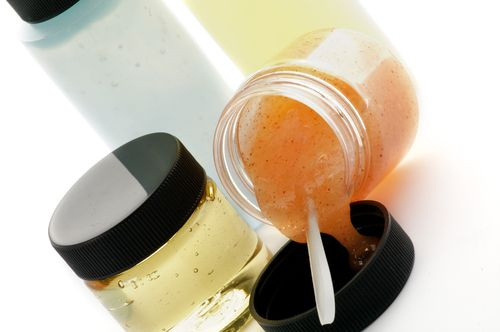New York Calls For Ban On Plastic Microbeads; Beauty Products With Beads Contain Chemicals That Lead To Toxins In Food Chain

In an effort to wash away dead skin cells, have younger, vibrant, and healthy-looking skin, beauty enthusiasts look for facial and body scrubs that contain plastic microbeads. However, every time people clean themselves using these personal care products, they could be dirtying the ecosystem, specifically the water. The environmental and health hazards has prompted lawmakers in the state of New York to call for a ban on cosmetics containing microbeads because they pollute the waters and can lead to toxins in the food chain to humans.
The bill, introduced Tuesday by Assemblyman Robert K. Sweeney of Suffolk County on behalf of Attorney General Eric T. Schneiderman, would ban the sale of cosmetic and beauty products that include the tiny plastic beads. “This is the introduction of common-sense legislation that will stop the flow of plastic from ill-designed beauty products into our vital waters, preserving our natural heritage for future generations,” said Schneiderman in the release. The size and chemicals of these beads cause them to be sifted out at sewage treatment plants and end up in the ocean. This causes them to become a pollutant that can be ingested by wildlife and eventually becomes toxic to the food chain for humans.
In New York, the microbeads end up in the Great Lakes through the municipal sewer system after it's rinsed down the drain. The tiny plastic beads — which are not biodegradable — could generate a big problem for wildlife and sea organisms. Attached to the surface of the plastic are environmental pollutants like PCBs, which fish can commonly mistaken for food because they look just like fish eggs. This can lead to the chemicals getting passed up the food chain until they make their way to humans.
These beads — part of the microplastics found in the oceans — accounted 60 percent of what was found in the ocean floor, in a study done last year by the 5 Gyres Institute and a team of researchers at State University of New York (SUNY) at Fredonia. “The biggest concern is the possible ingestion of these microplastics by aquatic organisms," said Sherri Mason, a researcher at SUNY Fredonia, Mother Earth News reported. These tiny microplastics are being consumed by fish and birds, causing them to fill up on plastic and preventing them from digesting real food.
Personal care companies commonly use plastic because it is much more cost effective. However, manufacturers such as Procter & Gamble and Johnson & Johnson, have agreed to eliminate the use of plastic beads in their beauty products. Burt Bees and St. Ives have already used natural alternatives like coconut husk, powdered pecan shells, walnut shells, oat kernel flower and jojoba beads in their products for the health safety of their customers and the environment.
Groups like the Plastic Soup Foundation & Stitching De Noordzee, along with contributors like Fauna & Flora International, Dutch Ministry of Infrastructure & Environment and United Nations Environmental Programme have come together to form the international campaign against microbeads in cosmetics. The site, Beat the Micro Bead, allows iPhone users to download the app developed to assist consumers with shopping. Shoppers can scan the barcodes of personal care products with their phones to see if microbeads are among the ingredients. Those without the app can still determine if a particular product contains microbeads by looking for “polyethylene” or “polypropylene” on the ingredients list.
While companies continue to phase out small plastic beads in their products — which takes years — exfoliating with PCB-free facial, body scrubs, and toothpaste with no microbeads can be the best alternative in the meantime. For those who love to eat fish, it’s best to avoid larger, older fish as they may have higher concentrations of PCBs that could be coated with these toxic microplastics. Next time, be more environmentally conscious when you exfoliate or brush your teeth with microbeads.
Published by Medicaldaily.com



























